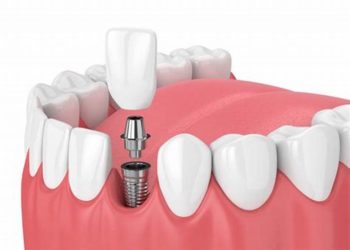Living with ADHD can be a challenging and overwhelming experience, but it doesn’t have to be. With the proper guidance, knowledge and understanding of this condition, you can learn how to cope better and discover ways how to live with it effectively.
This comprehensive guide will provide insight into what attention deficit hyperactivity disorder (ADHD) is all about and address some questions about its causes and effects. It will also look at strategies for managing symptoms – such as creating an action plan or using specific techniques like distraction management – that can help individuals live more productive lives despite their diagnosis.
We hope you’ll find this information useful in your journey towards living well with ADHD. In case your ADHD symptoms are worsening, talk with your general physician or visit buydiazepamuk for medication.
Understanding ADHD
Attention-deficit/Hyperactivity Disorder (ADHD) is one of the most commonly diagnosed neurodevelopmental disorders, impacting millions worldwide. While ADHD looks different in each person and can present itself in various ways, it is generally characterised by the following:
- Difficulty concentrating
- Attentive behaviour
- Hyperactivity
- Impulsiveness
- Distractibility
- Restlessness
- Executive functioning challenges
Diagnosing these symptoms correctly requires an experienced professional who can carefully assess the individual’s history and behaviour. If necessary, they may also recommend further testing to confirm or rule out a diagnosis of ADHD. With a correct understanding of the definition, symptoms and proper diagnosis of ADHD, it is possible to start adjusting your lifestyle to better cope with following this condition.
Developing Coping Strategies for Daily Life
Living life with ADHD can be a challenge, as every day may fill with distractions and difficulties that make it hard to stay on track. So how can you develop coping strategies and maximise your daily efficiency? One key area is time management — setting goals, breaking up tasks into small, manageable chunks, and utilising a calendar to keep on top of deadlines and obligations. Additionally, creating structure is another great tool for managing ADHD symptoms; establish a consistent routine and stick to it as closely as possible. Finally, strive for good organisation in your personal space by creating designated areas for each object so that everything is easy to find when needed. Regular organising helps reduce clutter and stress levels so you can focus more effectively on getting things done.
Managing Mental Health With ADHD
Living with ADHD can be a challenging experience, both mentally and emotionally. Therefore, it is important to recognise that taking control of our mental health is essential to keeping up with the demands of day-to-day living. Two valuable interventions that can help with this journey are mindfulness practices and Cognitive Behavioral Therapy (CBT). Mindfulness lets us let go of our challenging thoughts and feelings by focusing on the present moment rather than dwelling on past experiences or worrying about the future. At the same time, CBT teaches us more lasting skills for managing stress and improving our thought patterns to better manage the challenges associated with ADHD. Implementing both of these strategies into one’s life will lead to an increase in overall well-being, improved sense of self, heightened clarity, and better prepared for whatever comes one’s way in life.
Staying Physically Active
When living with ADHD, physical activity is essential for achieving optimal well-being. Exercise can help eliminate tension and stress that often comes with the condition and boost your energy and self-confidence. Regular exercise has been found to improve concentration, focus, and overall mental health. Additionally, working out can sharpen memory and reduce signs of anxiety or depression. Regular physical activity increases dopamine levels and improves sleep patterns, which are important for individuals with ADHD. With the right exercise regimen, those with ADHD will thrive physically and mentally!
Handling Stressors Effectively
Living with ADHD can be challenging, and it is important to recognise the potential stressors and learn how to handle them effectively. Stress can cause increased symptoms, and reducing those stressors can help improve your overall quality of life. One way to reduce stress is by learning relaxation techniques such as deep breaths, progressive muscle relaxation, guided imagery, yoga or mindfulness. Taking time to practice relaxation daily can help lower overall stress levels while also allowing you to become more present in your daily activities. In addition, taking note of what triggers your stress, communicating openly about how it affects you, and seeking helpful resources can all aid in finding ways of handling stress without added anxiety. Utilising these tips alongside developing a productive working style are key components in living successfully with ADHD.
Finding Supportive Resources to Navigate Challenges
Navigating life with ADHD can be an overwhelming experience, but thankfully, a wide range of supportive resources are available to assist. It is important to seek out community support groups specifically designed for individuals living with ADHD, as these are stocked with like-minded people who understand the challenges faced in daily life. Additionally, online resources such as blog posts and chatrooms geared toward ADHD are very beneficial. Finally, professional counselling services can provide tailored advice and guidance when addressing specific issues. Finding knowledgeable professionals specialising in ADHD treatment is key to successfully navigating the experience of living with the condition.
Conclusion
Living with ADHD is a personal journey. Learning to understand and manage ADHD daily can sometimes feel overwhelming, but it doesn’t have to be like this. The greatest success comes from an individualised approach by identifying the best tools and strategies for you. Whether using mindfulness practices to help manage mental health challenges or knowing when to take breaks from stressors to recharge, developing ways to reduce symptoms and maximise strengths takes time and patience. Supportive resources are available for those needing further guidance, and it’s important to remember there is no shame in reaching out for help. Embracing your unique journey with ADHD could be difficult, but it could also bring about amazing opportunities for growth and change if we move forward together.














































































